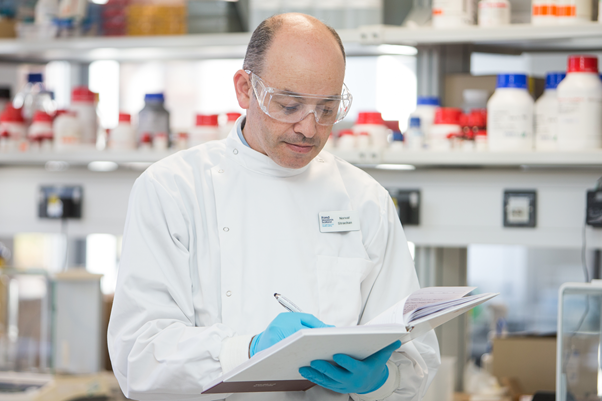News & Updates
How a Physicist can become FSS’s Chief Scientific Advisor

Welcome to my second blog. The first was an introduction to me and gave an opportunity to mention some of the things that you could do to improve food safety over Christmas.
I hope these blogs will provide practical advice and information on how we can improve food safety, standards, diet and nutrition in Scotland, and more importantly to explain the science behind the advice that FSS provides, which will help us all have healthier and hopefully longer, happier lives.
As I mentioned in my first blog I am a Professor of Physics at Aberdeen University and do my research in the School of Biology. I have frequently been asked since being appointed - “How does a Physicist become a Chief Scientific Advisor in food”?
Physics is a very broad subject ranging from the very small world of particles to the very large – cosmology, the study of the Universe. It also covers all of the physical phenomena in between – even food!
I completed a physics degree at university and then joined a Government fisheries research laboratory. I worked in the physics section on developing sensors and instrumentation. Physics is a science that aims to provide an understanding of the physical world so you need ideas of what you want to explain, but also you need to make measurements on the things you are trying to explain. This involves developing sensors and instrumentation. I worked on acoustic sensors for counting fish in fish farms[1], gas sensors for measuring the spoilage of fish and computer vision for grading and sorting fish[2].
Eventually, the work in my lab moved into the area of food safety and so my work on sensors and instrumentation also moved into this area. I developed fiber optic identification methods to find listeria using DNA hybridization from foods[3], finding aflatoxins in nuts[4] and staphlycoccus enterotoxins in cream[5] using biological sensors.
Shortly after my lab relocated I moved to Aberdeen University as a lecturer in physics. Here, I continued my work on sensors. However, being in an academic environment there was now an opportunity to work with many different types of scientists, to try and answer some bigger questions that were of interest not only from a scientific perspective but could also be of benefit for society.
My main research interest for the last 15 years has been trying to understand how humans become ill by infectious diseases, predominantly the ones that cause food poisoning, and what can be done to reduce the burden of illness[6][7][8]
My main focus is on gastrointestinal pathogens that include E. coli O157, Campylobacter, Cryptosporidium, Salmonella, and Listeria. Working in this area has given me the opportunity to visit fish factories abattoirs, beef and dairy farms as well as fish farms. I will utilise my previous experience working in multi-disciplinary teams, to now tackle the challenges of diet and food safety with colleagues at FSS
So that is a brief walk through my background and hopefully explains why a Physicist can be a suitable person to become Chief Scientific Advisor for Food Standards Scotland.
[1] http://www.sciencedirect.com/science/article/pii/014486099090029Y
[2] http://www.sciencedirect.com/science/article/pii/0957415894900523
[3] http://onlinelibrary.wiley.com/doi/10.1111/j.1472-765X.1995.tb00993.x/ab...
[4] http://www.tandfonline.com/doi/citedby/10.1080/09540109709354948
[5] http://www.sciencedirect.com/science/article/pii/S016816059701252X
[6] http://www.nature.com/articles/srep14145
[7] http://www.sciencedirect.com/science/article/pii/S0168160514003328
[8] http://aura.abdn.ac.uk/bitstream/handle/2164/3049/Plosone2013b.pdf;seque...